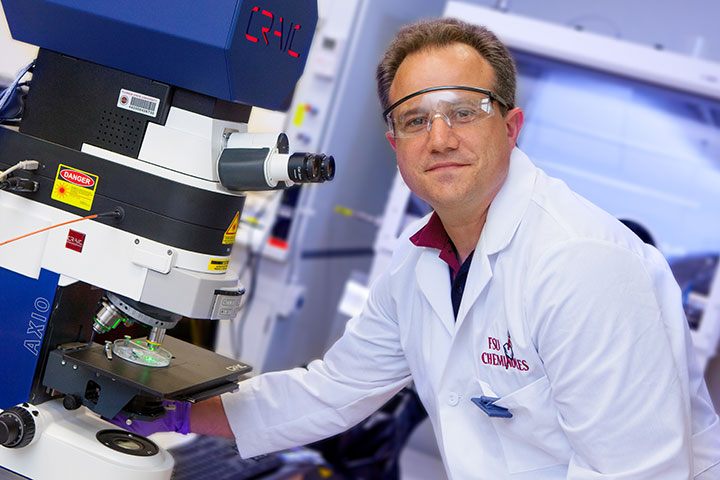
A Florida State University professor has received the American Chemical Society’s Southern Chemist Award in recognition of his contributions in nuclear chemistry.
Thomas Albrecht-Schmitt, the Gregory R. Choppin Professor of Chemistry, received a medal and plaque at the organization’s annual meeting in Washington, D.C. The award honors those who are U.S. citizens and worked in the South for at least 10 years, actively participated in ACS events and brought recognition to the South through their work.
“It was a surprise and great honor to receive this award from my peers at the ACS,” Albrecht-Schmitt said. “While I am gratified by the recognition, none of it would have been possible without the tremendous work done by the students and postdoctoral researchers who have worked in my laboratory. This honors them as well.”
The award comes in recognition of Albrecht-Schmitt’s research in nuclear chemistry. He has done extensive research on some of the most complicated chemical elements on the fringes of the periodic table, including plutonium, californium and berkelium.
His work on californium, in particular, paved the way for scientists to examine how these radioactive elements, which are wildly unstable, could be bonded with other elements and used to build radioactive materials.
Last year, he received a $10 million grant from the U.S. Department of Energy to create a new Energy Frontier Research Center that will focus on accelerating scientific efforts needed to support nuclear waste cleanup. Specifically, Albrecht-Schmitt and his lab will focus on better understanding the capabilities and limits of some of these radioactive elements.
“To clean up some of these nuclear sites, we need to first fully understand how many of these materials work,” Albrecht-Schmitt said.
Albrecht-Schmitt received his doctoral degree in 1997 from Northwestern University and taught at Auburn University and the University of Notre Dame before coming to Florida State in 2012. He holds an endowed professorship in honor of Gregory R. Choppin, the late nuclear chemist who co-discovered the element mendelevium, atomic number 101.




